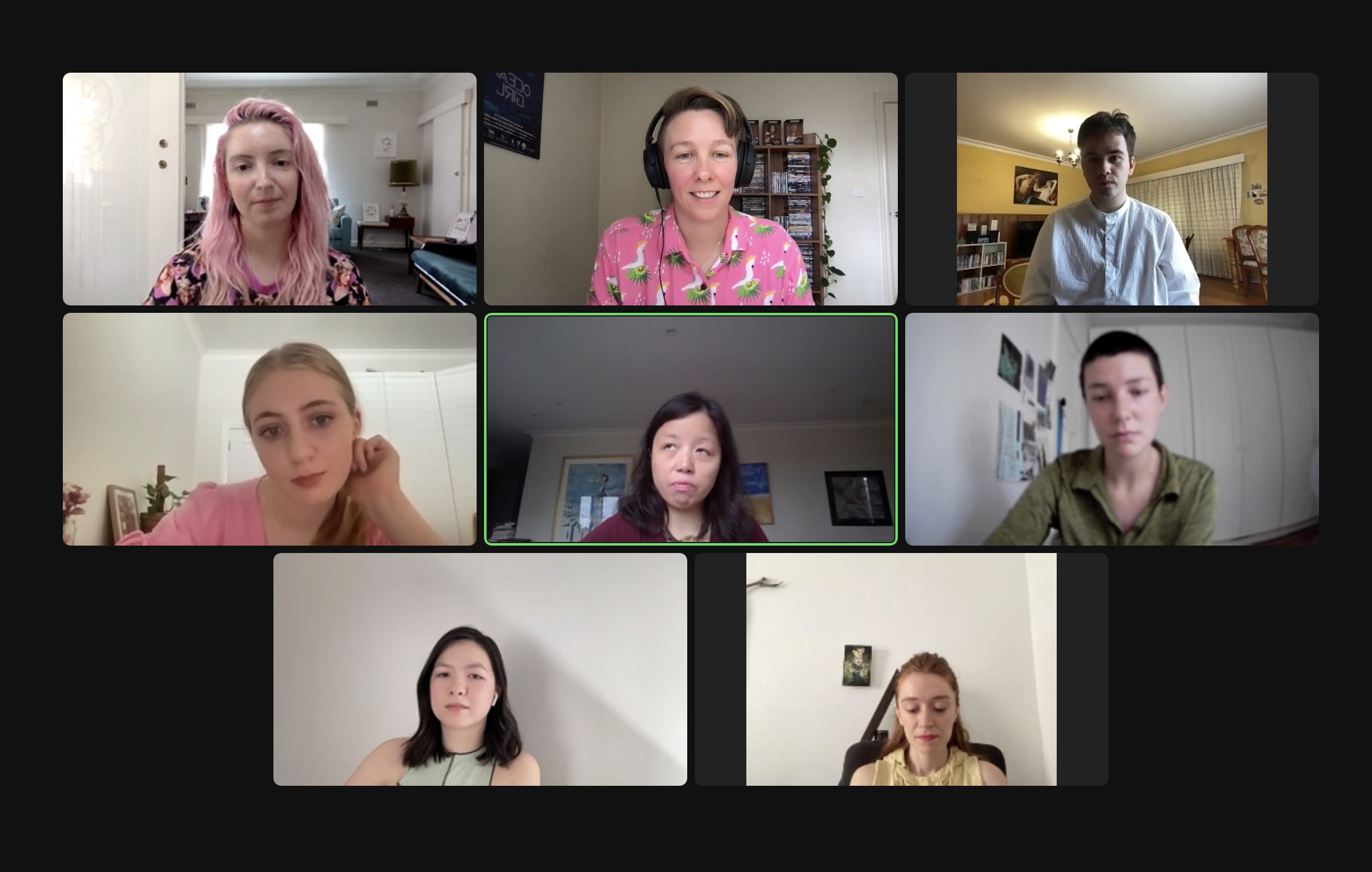Escaping the Presumptive "We": Reflections on the MWFF Critic’s Lab
written by Lily Rodgers
The warm scent of instant coffee fills my room, a jumble of blue post-it notes are strewn across the desk, and on the wall an A4 sheet of paper reads in all capitals: NO PRESUMPTIVE WE.
This urgent note-to-self - hurriedly scribbled in black whiteboard marker - emerged from some indispensable advice I received as part of the MWFF Critics Lab.
Prior to my experience in the critic’s lab, I relied on the plural "we" when writing film criticism:
"We are captivated by..."
"We are reminded of..."
"We reflect on..."
In response to an early draft of my review on Alana Hicks' Chicken, mentors Lesley Chow and Aimee Knight pointed this out and posed an essential question... "Who is that anonymous but authoritative voice?"
On one hand, 'we' is a shield. It is passive. A way of stating an opinion without owning it.
I, like many of my fellow mentees, was initially hesitant to criticise the films - especially those produced by emerging filmmakers - and used 'we' to soften my judgements. The mentors answered our concerns with a question: "Do critics have a role in fostering interesting cinema?"If yes then it's important, they told us, to say when something isn't working, or could have worked better.
The key here is specificity. If there's a line of dialogue that is quite trite... use that as an example. If there's a moment that could have been fleshed out more deeply... talk about it. Being clear about the impact of a film is essential to promoting sophisticated cinema and hiding behind 'we' jeopardises the insight filmmakers and viewers can gain from a review.
At the same time, 'we' presumes the ability to speak for others. In her 2017 article for The Paris Review, Claire Dederer writes that 'we' is a way of "taking on the mantle of easy authority. It's the voice of the middle-brow male critic, the one who truly believes he knows how everyone else should think."
The critics lab taught me that film criticism, contrary to popular opinion, is not prescriptive. It is not about telling people what to think about a film. It's evaluative, but not about a simple thumbs up or thumbs down. Instead, it is about giving the audience an impression of the film. Mimicking the sensory experience, the textures, of cinema. Allowing viewers to visualise the soft dappled light of The Mulberry Tree, to hear the clickity-clack of a spooky children's toy in Vaspy or feel the danger of a remote rural street in The Phone Booth. 'We' is counterproductive to this. It tells audiences what to think, and in so doing, obscures the sensations of a film.
In our conversations throughout the festival, the more specifically each of us mentees spoke about our individual impressions, feelings, and visions of a film, the deeper our understanding became. Escaping the presumptive "we" allowed us to discuss, debate and recognise diverse perspectives. And to me, that is the beauty of cinema. The audience is not a monotonous 'one', but many, sharing an experience in their own unique ways.

